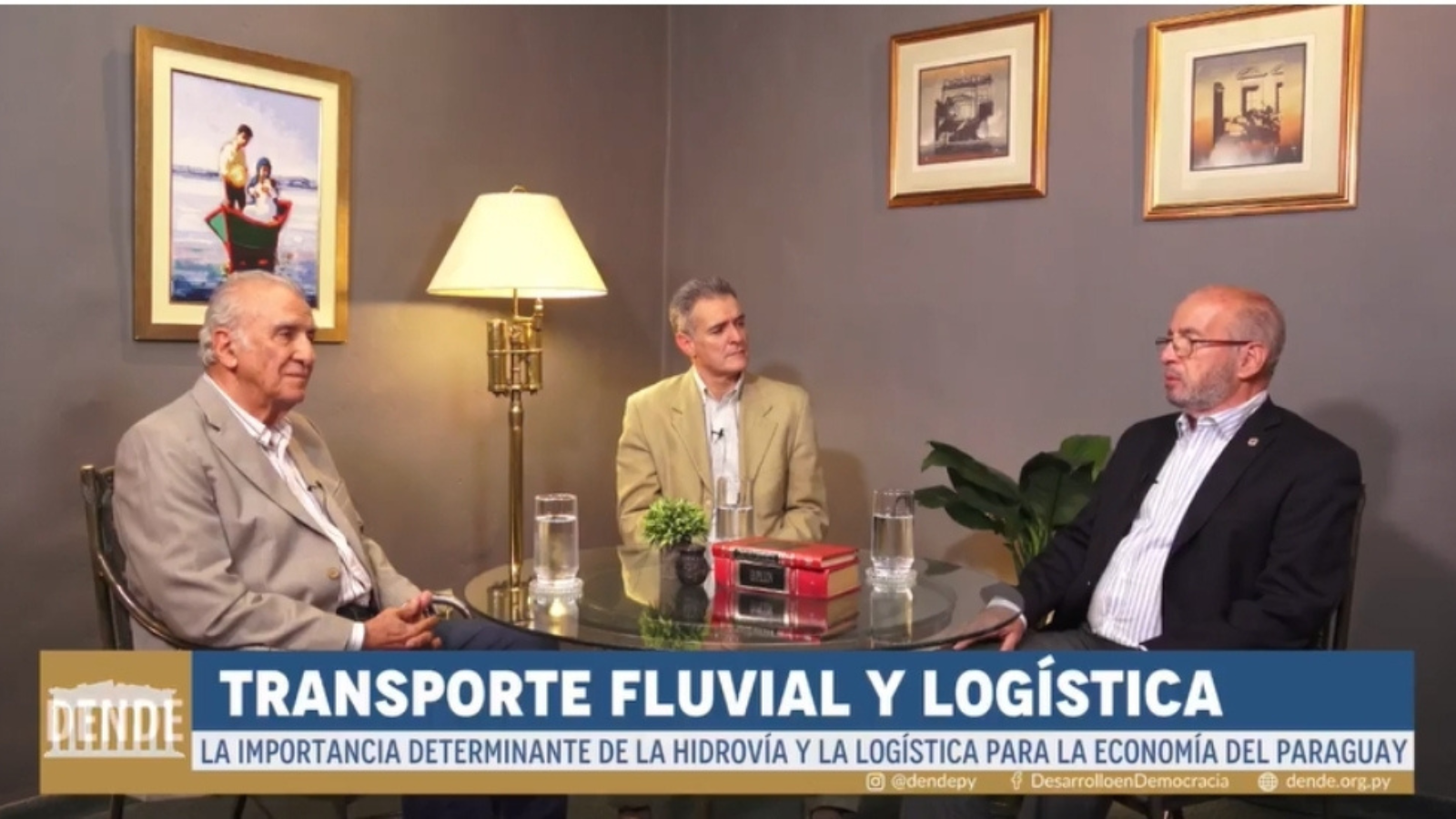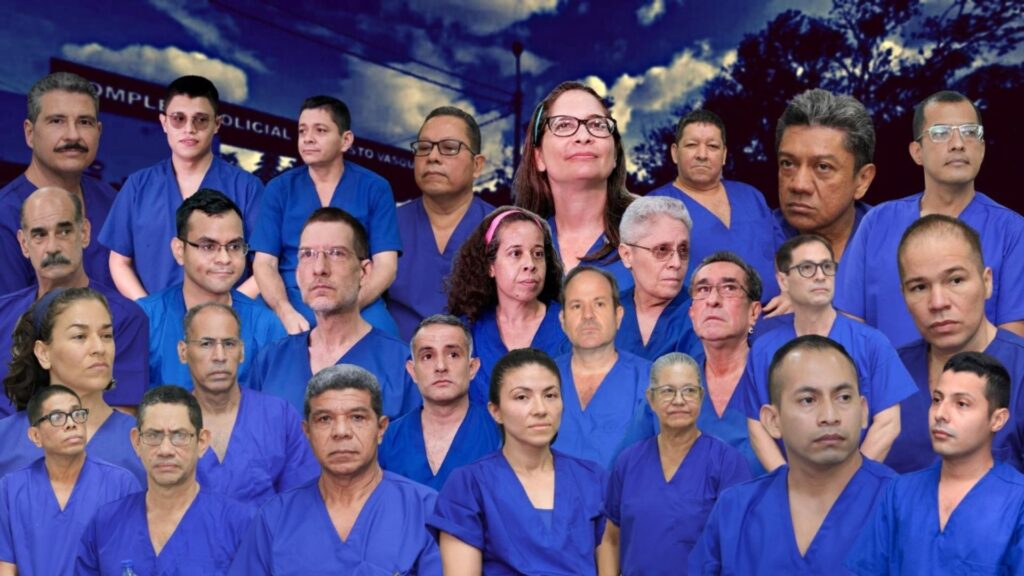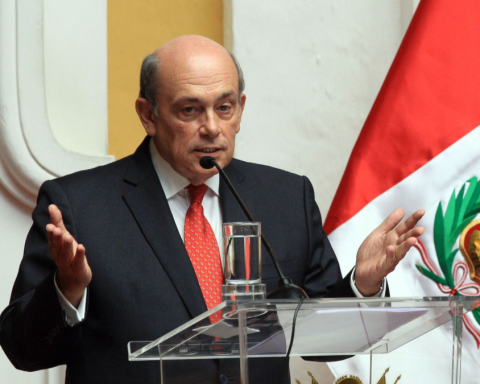The reliability of the waterway must be maintained and continue with agreements that contain a comprehensive view that favors trade and do not generate distortions, agreed Juan Carlos Muñoz, director of the Center for River and Maritime Shipowners (CAFYM), and César Jure , president of the Paraguayan Chamber of Cereals and Oilseed Traders and Exporters (Capeco) and director of the Chamber of Terminals and Private Ports of Paraguay (Caterppa), during the Dende Public Square, where the topic “Fluvial transport and logistics . The determining importance of the Waterway and logistics for the economy of Paraguay”, moderated by Yan Speranza and the opening by Alberto Acosta Garbarino, head of Dende.
Paraguay has a fleet of more than 3,000 vessels and approximately 400 tugboats that serve not only Paraguay but the entire region, starting in Corumbá (Brazil), covering the ports of the Tamengo channel, in Bolivia, up to the Río de la Plata, Argentina. This generates jobs for a little more than 5,000 people directly and about 25,000 indirectly.
Currently, 22 million tons are transported through the Paraguay-Paraná waterway and it is estimated that, by 2030, the number of tons transported will increase to 50 million.
In this context, Argentina’s decision to charge a toll on the Main Navigable Way (VNT) of the Paraná River, from the area between Km. 58.4, the outer section of access to the Port of Santa Fe, up to Km 1238, called Confluence, raises concern due to the effect it could have on exports and imports of our country.
It is estimated that the application of the rate or toll will have a very important impact on the Paraguayan economy, since it would generate a cost of between 35 and 40 million dollars only for Paraguayan products, which will be transferred to the final consumer.
For Juan Carlos Muñoz, it is time to start having another style of management in our international relations regarding logistics, since it is an important part of the cost equation and the competitiveness of Paraguayan production. In this sense, he maintains that, if the countries are not willing to recreate the Agreements that took place in the 1990s, when there was an integration boom, very likely there will be very complicated scenarios for competitiveness. He indicated that the countries must agree to carry out works that cover the entire spectrum of the Waterway, from the two economically active points that are Corumbá and Río de la Plata.
On June 26, 1992, Argentina, Brazil, Bolivia, Paraguay and Uruguay signed the Waterway Agreement for the transport of cargo through the Paraguay and Paraná rivers, except for the Alto Paraná river. The integrity of the work was lost in 2004 when it was jointly decided that each country should be in charge of its section. Muñoz said that beyond sovereignty, it must be understood that the river cannot be intervened in sections and that the countries must agree on what, when and where the interventions will be made to maintain the river’s navigability.
The Paraguayan fleet handles practically 94% of all river trade from Corumbá, Brazil, to the Río de la Plata, Argentina. The remaining percentage is made up of Argentine cabotage, in the fuel part, and some barges with Uruguayan registration.
To this must be added the potential of the Interoceanic route, which runs from Carmelo Peralta to Pozo Hondo, and which will generate an economic spillover with the provision of a service that will be beneficial for Paraguay. There are 3,984 kilometers from Santos (Brazil) to Antofagasta (Chile), with almost 600 kilometers passing through Paraguay, which implies an initial potential of 2,000 trucks per day, with an estimated spill of 200 dollars per truck per day.
For his part, the head of Dende, Alberto Acosta Garbarino, stated that Paraguay today has serious dredging and beacon deficiencies in the Paraguay and Paraná rivers, which do not allow them to be smoothly navigable. To this was added the eternal problems with Argentina, which intends to charge a toll for the passage of our ships to the sea.
Meanwhile, César Jure agreed that charging the toll at that point is not justified, because it is the river section for barges and an area where there is very little work to be done for this type of vessel to navigate.
There are currently 34 private ports, many of them specialized in grains, and others for general container cargo, liquid cargo, dry cargo, solid cargo and bulk cargo.
Paraguay has 543 sovereign kilometers of fluvial navigation, from the Apa River to the Pilcomayo River. Currently, it is intended to carry out a study with the United States Army Corps of Engineers (USACE), who will prepare a master plan that will allow a comprehensive approach to the sovereign basin.
Jure stated that once the master plan has been defined, it must be determined who is going to be in charge of carrying out the works, how, the work schedule and financial availability.
An alternative could be through a public-private initiative, through the payment of toll compensation, which does not please the export sector; and the other is to continue doing the work with State resources, with specific interventions where there are navigation difficulties.
In this regard, Capeco requested that the interventions to be carried out be discussed at the level of the Waterway Committee and how these interventions will be compensated, so that the work to be carried out is agreed upon and there is no unilateral imposition.
Regarding the Itaipu locks project that is contemplated in the Treaty and the second bridge being built by the binational, César Jure pointed out that although it is not a bimodal bridge, the one that is being completed, he stressed that all these communications infrastructure investments inside of the continent are important for the country.


















